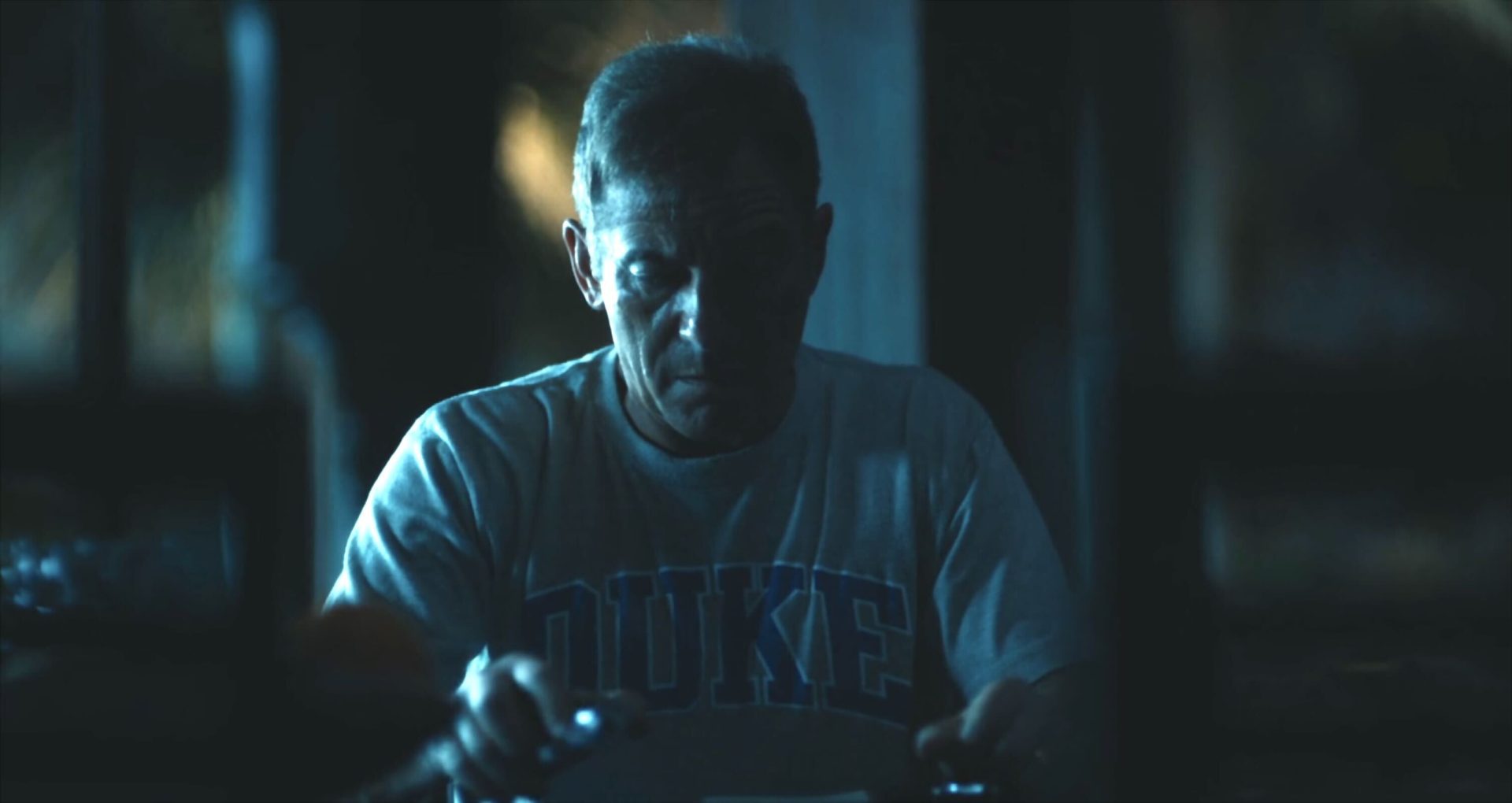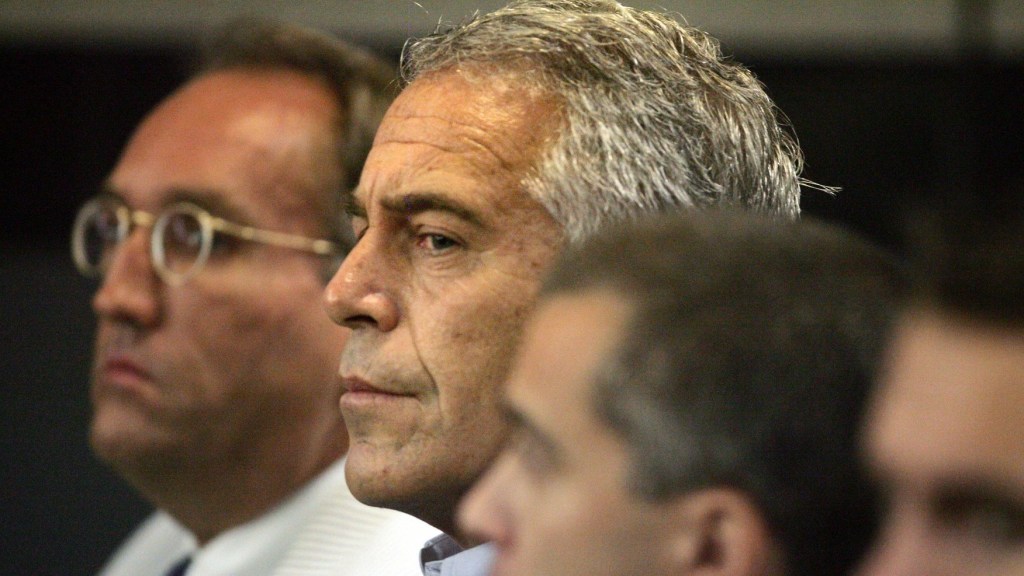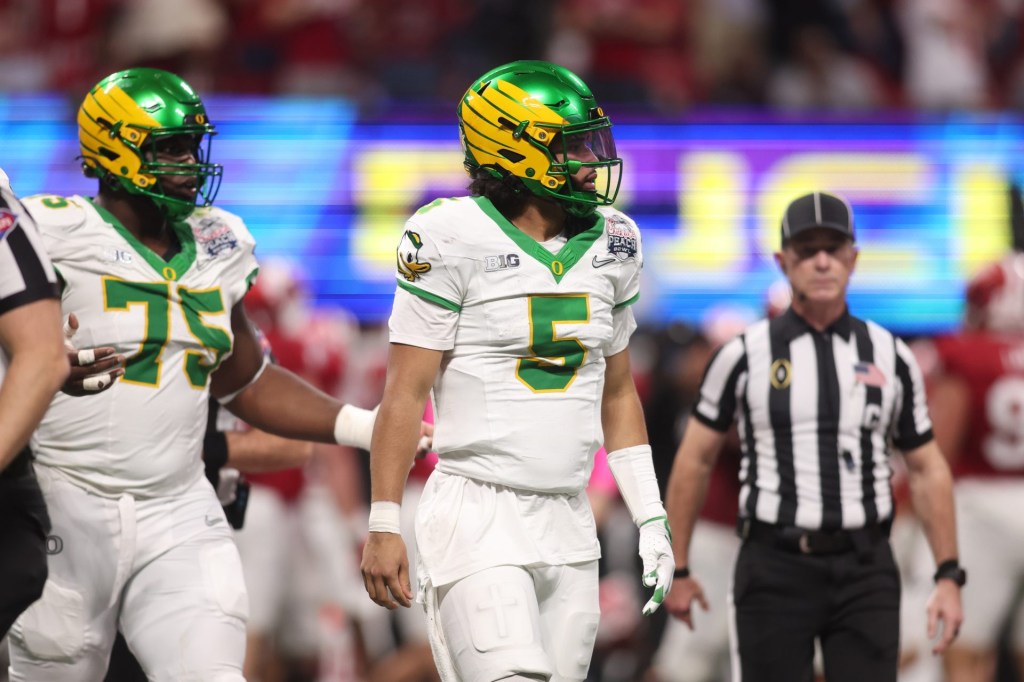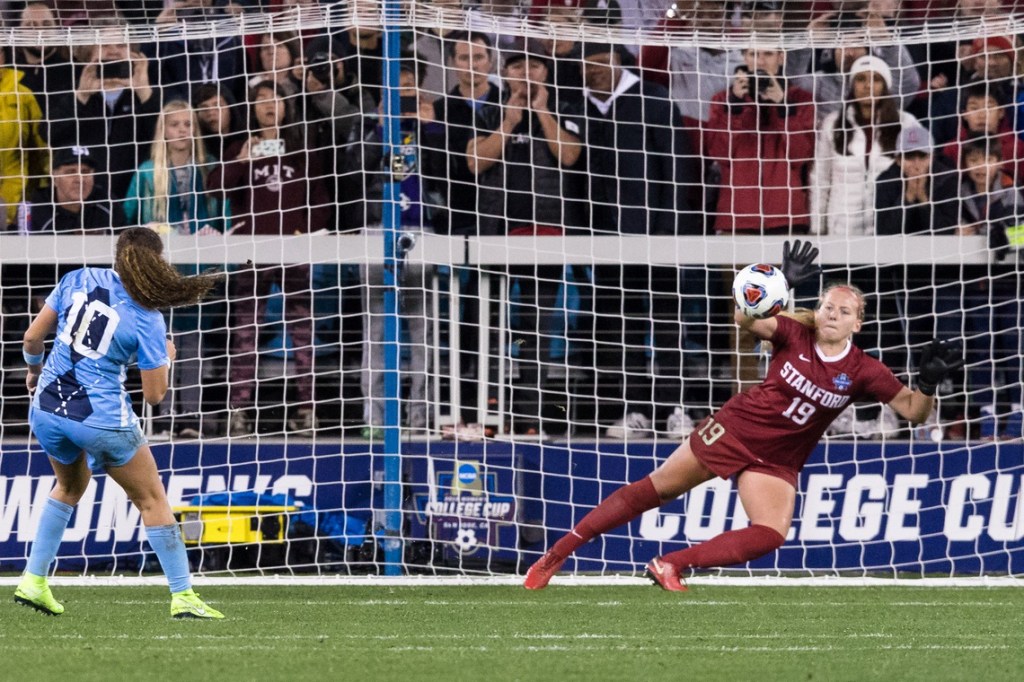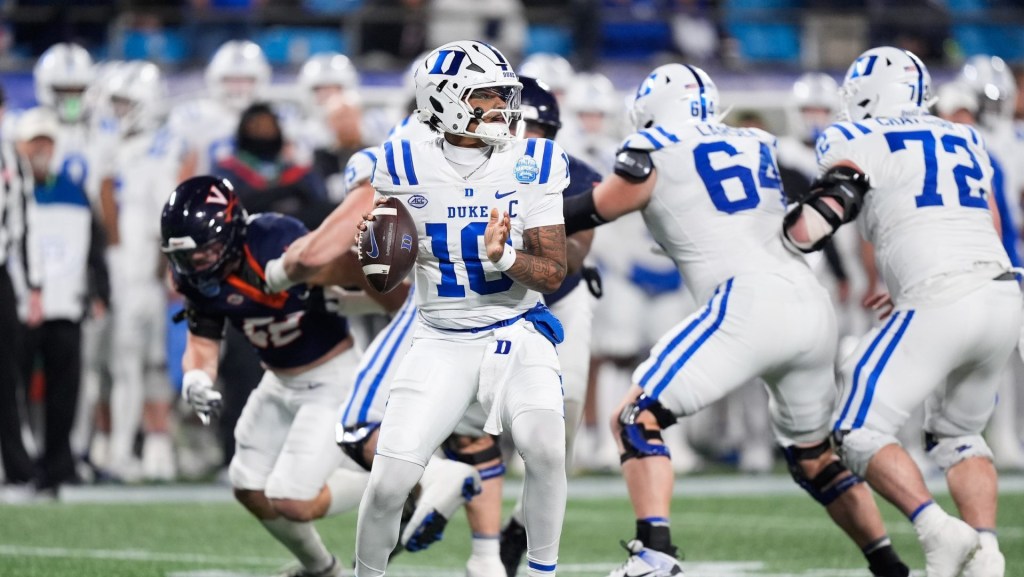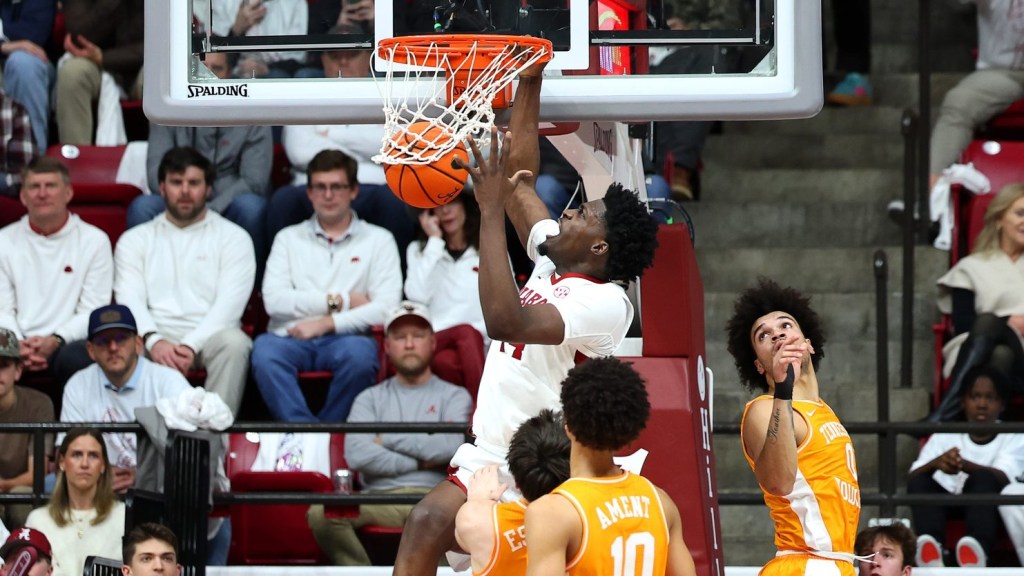As the Duke University men’s and women’s basketball teams push their way through March Madness, a different group of Blue Devils is slowly losing their minds.
On the third season of HBO’s dark comedy The White Lotus, set at the titular resort in Thailand, the Ratliff family is divided between a father and son who went to Duke, and a mother and daughter who went to North Carolina. The father, played by the English actor Jason Isaacs, begins abusing drugs and contemplating suicide as he learns of a criminal investigation to his business back home.
At the end of the season’s fifth episode, which aired March 16—four days before the men’s tournament tipped—the character pens a suicide note and puts a (stolen) gun to his head, all while wearing a DUKE t-shirt.
The school, somewhat understandably, is not happy. It’s not quite clear what they are seeking from HBO or its parent company, Warner Bros. Discovery, but a university spokesperson first registered his displeasure in a New York Times story published Wednesday.
“Duke appreciates artistic expression and creative storytelling,” the spokesperson, Frank Tramble, told the Times. “But characters’ prominently wearing apparel bearing Duke’s federally registered trademarks creates confusion and mistakenly suggests an endorsement or affiliation where none exists.”
Tramble would not answer questions from Front Office Sports about whether Duke is suing over the shirt, requesting to have episodes edited, or merely seeking some type of apology.
“Our only goal is to point out that all artists need to be mindful of the impact when they depict something as consequential as suicide with a college brand,” he told FOS. “We take mental health and suicide very seriously, and using any collegiate brand in this way trivializes a real and tragic problem.”
Duke is extremely unlikely to succeed in any hypothetical trademark complaint, experts say. Two trademark lawyers interviewed by the Times said that courts have widely sided with artists in similar cases.
Alexandra Roberts, a trademark expert and professor of law and media at Northeastern University, concurs. She told FOS that the school is generating a “Streisand effect” situation where they’ve drawn more attention to the thing they’re mad about, and called it “severely embarrassing” for the school to make any trademark-based claim.
“It’s textbook nominative fair use/trademark use in an expressive work that is entitled to robust first amendment protection,” she wrote in an email. “Trademark law also offers broad protection when trademarks are used in creative works, like visual art, sculpture, film, TV, and novels,” she added, comparing the Duke shirt to a scene set inside a chain restaurant or a character wearing clothes from a prominent brand.
In a similar case last month, Pepperdine asked a judge to block Netflix from airing Running Point, a comedy where Kate Hudson runs a basketball team called the Waves. Pepperdine argued that the use of “Waves” was a “misappropriation of the university’s brand,” but a judge declined to grant a temporary restraining order, clearing the show to air. That lawsuit is continuing, although experts believe the college is unlikely to win.
Tramble, the Duke spokesperson, complained to the Times that The White Lotus “uses our brand without permission” and “simply goes too far.” In addition to the drug abuse and suggestions of suicide, the father appears to have committed significant financial crimes, while the Duke-alum son can only be described as a raging misogynist; he has an incestuous encounter in a recent episode with his younger brother, who is weighing whether to attend Duke or North Carolina.
Duke’s men’s team plays in the Sweet 16 against Arizona on Thursday night in Newark, and its women’s team plays its hated rivals from Chapel Hill on Friday. HBO airs The White Lotus on Sunday nights; two episodes remain this season.
HBO declined to comment. Duke’s basketball programs did not immediately respond to requests for comment.
